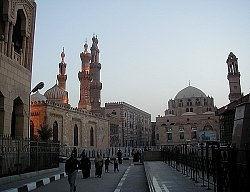Practical Information
Visa Requirements
Non-Egyptian visitors arriving in Egypt are required to be in possession of a valid passport. Entry visas may be obtained from Egyptian Diplomatic and Consular Missions Abroad or from the Entry Visa Department at the Travel Documents, Immigration and Nationality Administration (TDINA). It is, however, possible for most tourists and visitors to obtain an entry visa at any of the Major Ports of Entry. Please check with the nearest Egyptian Consulate for specific details and regulations relevant to your nationality.
Citizens of the following countries are required to be in possession of a pre-arrival visa: Afghanistan, Algeria, Armenia, Azerbaijan, Bangladesh, Bosnia-Herzegovina, Chechnya, Croatia,Georgia, India, Indonesia, Iraq, Iran, Israel, Kazakhstan, Kirghizia, Lebanon, Macau, Macedonia, Malaysia, Moldavia, Morocco, Pakistan, Palestine, The Philippines,Russia, Serbia and Montenegro, Slovenia, Sri-Lanka, Tadzhikistan, Thailand, Tunisia, Turkmenistan, Ukraine, Uzbekistan and all African countries.
More information: http://www.mfa.gov.eg/frames.asp?id=05
Health Requirements
Check with your own country's health guidelines for travelers to Egypt. For general health information we advise to look at WHO, UN's World Health Organization's travel and health information for Egypt.
Time
GMT + 2 hours.
Summertime (GMT + 1 hour) observed from late April until end of
September.
Money
Egyptian Pounds (EGP) is the local currency in Egypt. Exchange rate 1
USD = 5.80 EGP and 1 EUR = 7.52 EGP (April 2004).
Major currencies can be changed nearly everywhere. Banks are in all
cities as in most top end hotels. Automats for credit cards are found in
most banks and mentioned hotels.
Travel Seasons
Top season in Egypt is the "winter season" which starts in October and lasts until end of April.
Climate
Egypt has lower temperatures during the winter season. Average temperature in Cairo in April is 28 degrees Celsius in daytime and 14 degrees in the night.
Food and drink
Egypt is a meeting point between Africa, Europe and Asia and this is
reflected in the different dishes. The last few hundred years influenced
by Turkish cuisine due to the Turkish presence in Egypt.
Still there is something Egyptian going through the diversity of the
local cuisine, much with roots back to Ancient Egypt.
Egyptian food can be "hot" - but not like many other cuisines where
everything is hot. There is normally a lot to dip into, and all parts
got their special taste. In general Egyptian food is a pleasant surprise
for most visitors. All types of drinks are available.
Dress code
In part of the big cities you will find Egyptians in the latest
fashion from Europe or North America, while other places you will find
dress customs most will define as "biblical".
In modern city areas, hotels and more "tourist" places - go as you
please. If you go to different areas in same city or the countryside,
the tradition will be more conservative. It is appreciated if you think
about this while visiting these areas. For men, don't go without t-shirt
in such areas, and for women - have a dress with around knee length and
an upper part that cover your shoulders.
Apart from going inside a mosque, there is no place a woman is expected
to wear headscarf. To go inside a mosque, both sexes will have to remove
their footwear. Note that in churches it's also appreciated if women
wear head scarf - and for men and women, no shorts in Churches and
Mosques.
